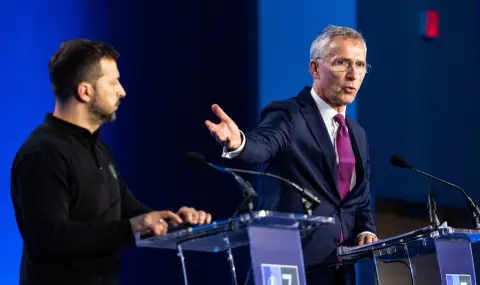NATO Secretary General Jens Stoltenberg warns that Europe and NATO must prepare for the possibility that the war in Ukraine could last ten years. In an interview with the BBC, he emphasized that the more clearly the Western allies demonstrate their readiness for long-term support of Ukraine, the faster the conflict can be resolved, reports News.bg.
Stoltenberg points out that President Putin believes he can wait and outlast the Allies, prolonging the war. "When we clearly state that we are here for the long haul and are determined to help Ukraine, we are creating the conditions for a resolution of the conflict in which Ukraine will emerge as a sovereign and independent state," he says.
Once he leaves office in October, Stoltenberg will be replaced by former Dutch Prime Minister Mark Rutte. He calls on European NATO countries to increase aid funding to Ukraine and expresses concern that the eventual return of Donald Trump to power in the US could lead to a reduction or termination of US aid to Ukraine.
From September, NATO will deploy a special unit in Germany that will coordinate the provision of aid to Ukraine. Stoltenberg assured that this would ensure greater predictability and accountability of the aid and demonstrate the firm determination of the Alliance to support Ukraine.
Germany has announced that next year it will reduce military aid to Ukraine from 8 billion euros to 4 billion. Finance Minister Christian Lindner explained that this is possible thanks to funding from the Group of Seven (G7) countries, which have agreed to provide $50 billion of frozen Russian assets.
Meanwhile, former US President Donald Trump has chosen Senator James David Vance as his running mate. Vance is known for his isolationist positions and opposition to aid to Ukraine.
Stoltenberg expressed confidence that the US will not leave NATO, as a strong alliance is in the interest of the United States itself. He acknowledged that Trump had rightly criticized European countries for their low defense spending, but noted that the situation had changed. This year, 23 of NATO's 32 member countries will meet and exceed defense spending targets of 2% of GDP.
"NATO is the most successful alliance in history because, despite our differences, we have always been ready to unite around our core values and defend each other. I think that will continue after the US election," Stoltenberg finished.
